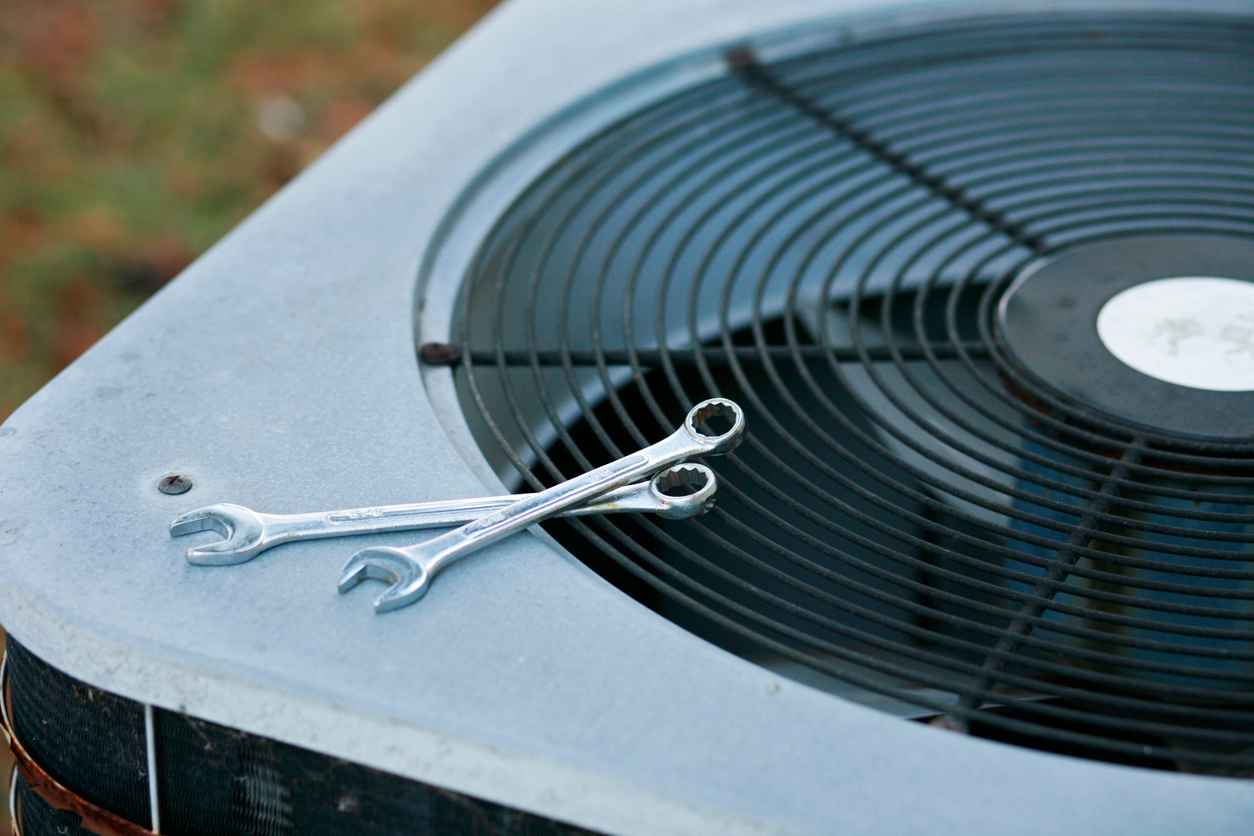When your air conditioner stops working properly, it can turn a comfortable home into a stressful situation—fast. Whether it’s blowing warm air, leaking water, or making strange noises, AC issues are never fun to deal with, especially in the middle of a heatwave.
Many of these problems are common and can often be prevented or resolved with a bit of maintenance and know-how. Still, it’s important to understand the warning signs and know when it’s time to bring in a professional. In this blog, we’ll walk you through the most common AC problems homeowners face and what you can do about them. From minor issues to warning signs of bigger trouble, we’ve got your back.
Why AC Problems Happen
Air conditioning systems are complex machines made up of multiple moving parts and electrical components. Over time, regular wear and tear, poor maintenance habits, or external factors like dirt and humidity can cause these parts to malfunction. Sometimes the issue is as simple as a clogged filter, and other times it might be more serious—like a refrigerant leak or failing compressor. In many cases, catching these problems early can prevent more expensive repairs down the line. That’s why it’s helpful to understand the common reasons behind AC issues and how they typically begin.
Common AC Problems and What They Mean
Understanding what’s going wrong with your air conditioner is the first step to getting it fixed fast. Below are some of the most frequent problems homeowners encounter and what they might indicate about your system.
Warm Air Coming from Vents
If your AC is running but only blowing warm air, it could be a sign of a refrigerant issue, dirty coils, or a malfunctioning compressor. It may also be as simple as an incorrectly set thermostat or a clogged air filter.
Poor Airflow
Weak airflow often points to problems with the air filter, ductwork, or blower motor. If air isn’t moving well through your system, it won’t cool your home efficiently—and your energy bills might rise.
Frequent Cycling
AC systems should have a predictable on-off pattern. If yours is cycling constantly, it may be struggling to keep up due to an oversized unit, a thermostat issue, or a dirty evaporator coil.
Leaking Water
Condensation is normal, but puddles around your AC are not. Clogged drain lines or rusted drain pans can cause water to back up and leak into your home, potentially damaging your floors and walls.
Unusual Noises
Grinding, squealing, or banging noises can indicate worn-out parts or mechanical issues. These sounds should never be ignored—they’re early warnings of more significant system damage.
What You Can Try at Home
Not every AC problem requires a professional. In fact, there are a few simple things you can check or do on your own before making that service call. These basic troubleshooting steps might help you get your system back on track—and save you money in the process.
Change the Air Filter
A clogged or dirty filter is one of the most common causes of poor performance. Changing your filter every 1–3 months can improve airflow, efficiency, and air quality.
Check the Thermostat Settings
Make sure your thermostat is set to “cool” and not “fan” or “heat.” Sometimes the issue is as simple as an accidental change in settings.
Clean Around the Outdoor Unit
Leaves, grass, and other debris around your condenser can restrict airflow. Gently clearing away anything blocking the unit can help restore proper function.
Inspect the Circuit Breaker
If your system won’t turn on at all, check your electrical panel. A tripped breaker is a quick fix that restores power to the AC unit.
Unclog the Condensate Drain
If you notice moisture around your indoor unit, a clogged condensate line may be to blame. A shop vacuum or some distilled vinegar can help clear the line.
When to Call a Professional
While some AC issues are simple enough to handle yourself, others signal more serious problems that require the expertise of a licensed technician. If you’ve tried the basics and your system still isn’t working right—or if certain warning signs pop up—it’s time to bring in help.
Refrigerant Leaks
Low refrigerant levels or visible leaking near your AC unit require immediate professional attention. Refrigerant is essential for cooling and must be handled safely.
Electrical Failures
Frequent circuit trips, unresponsive thermostats, or complete power loss can indicate deeper electrical issues. These problems are potentially hazardous and best left to the experts.
Compressor or Motor Issues
Unusual noises, inconsistent cooling, or high energy bills may be caused by a struggling compressor or failing blower motor. Repairing or replacing these components takes professional tools and training.
Frozen Coils
If ice builds up on your indoor or outdoor coils, it’s usually a sign of airflow problems or low refrigerant. A technician can safely thaw and diagnose the issue without causing further damage.
Preventive Tips to Avoid AC Trouble
Regular maintenance is the best way to prevent many of the common problems homeowners face with their air conditioners. A few smart habits can extend your system’s life, improve efficiency, and reduce the likelihood of inconvenient breakdowns—especially during peak summer months.
- Schedule Annual Tune-Ups: Have your system professionally serviced at least once a year, ideally in the spring. This helps catch small problems before they become major ones.
- Change Filters Regularly: A clean filter improves airflow and keeps your system running smoothly. Mark your calendar to replace it every 1–3 months.
- Keep the Area Clear: Make sure the space around your outdoor condenser unit is free from debris, plants, or clutter that could block airflow.
- Seal and Insulate Your Home: Prevent your system from overworking by ensuring windows and doors are sealed and your attic is properly insulated.
- Pay Attention to Warning Signs: Don’t ignore strange noises, weak airflow, or rising energy bills. These are early indicators that something may be wrong.
Taking care of your AC system doesn’t have to be complicated. A little attention now can save you time, stress, and money later on.
Stay Cool with Expert AC Care
Your air conditioner plays a crucial role in your comfort, especially during the hotter months. By understanding the most common AC problems and how to handle or prevent them, you can keep your home cool and your system running efficiently. From small fixes like changing filters to knowing when it’s time to call in the pros, staying informed is your best defense against AC headaches.
If you’re dealing with any AC issues or want to schedule preventive maintenance, contact Over the Moon Heating, Air & Electric. Our expert team is here to help you stay cool and comfortable year-round.

